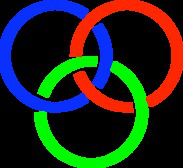Orateur
M.
Peder Sørensen
(Institute of Physics and Astronomu, University of Aarhus)
Description
The zero-range model subjects free solutions to the Schrödinger equation to the Bethe-
Peierls boundary condition at zero separation as a way of implementing the scattering length.
The range of the potential can be incorporated by using the effective range expansion in the
boundary condition [1]. This removes the problematic Thomas collapse yet the Efimov effect
remains. Alternatively, a multichannel model [2] not only has finite effective range but also nat-
urally describes the otherwise phenomenological dependence of the scattering length on applied
magnetic field as utilised in Feshbach resonance techniques.
We calculate the recombination rate of cold bosonic gases within the three-body hidden
crossing theory [3], and investigate finite-range effects by comparing the results from the zero-
range and finite-range models.
Finally we extend the model to include many-body effects through the mean-field and inves-
tigate how this affects the recombination rate.
References
[1] D. V. Fedorov and A. S. Jensen. Regularization of a three-body problem with zero-range potentials.
Journal of Physics A, 34(30):6003, 2001.
[2] J. H. Macek. Multichannel zero-range potentials in the hyperspherical theory of three-body dynamics.
Few-Body Systems, 31:241?248, 2002.
[3] E. Nielsen and J. H. Macek. Low-energy recombination of identical bosons by three-body collisions.
Phys. Rev. Lett., 83(8):1566?1569, Aug 1999.
Auteur
M.
Peder Sørensen
(Institute of Physics and Astronomu, University of Aarhus)
Co-auteurs
M.
Aksel S. Jensen
(Institute of Physics and Astronomu, University of Aarhus)
M.
Dmitri V. Fedorov
(Institute of Physics and Astronomu, University of Aarhus)

